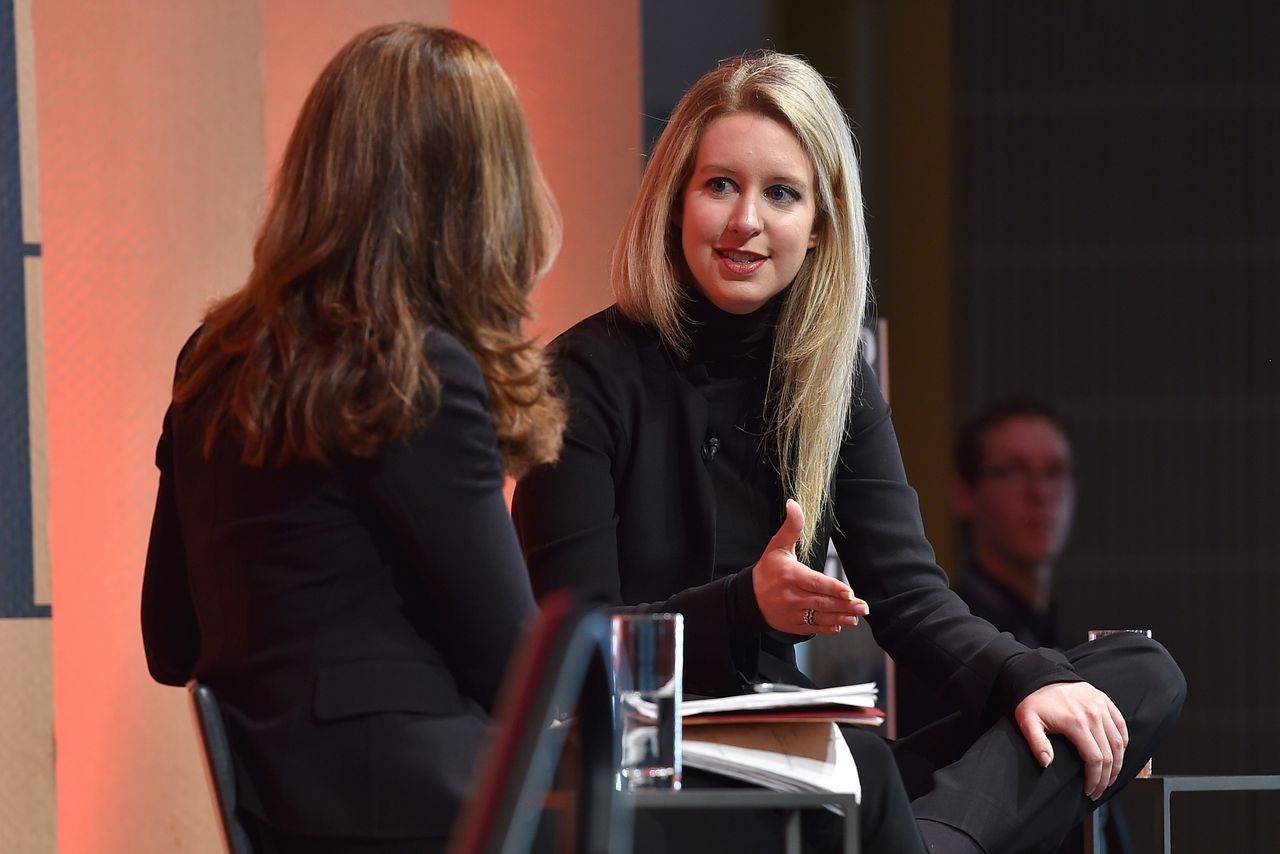
Theranos CEO Elizabeth Holmes made an appearance at a scientific convention today, but it wasn't to allay the many concerns about the company's previous blood tests, the results of which were thrown out earlier this year. Holmes also chose not to address the federal criminal and civil investigations against her company, instead announcing a new Theranos product: a blood-testing kit that could serve as the successor to its controversial Edison machines.
Speaking at the the annual meeting for the American Association for Clinical Chemistry, Holmes said the new machine — called the Theranos Sample Processing Unit, or "miniLab" — was the size of a computer printer, and will be able to run a battery of tests on just 160 microliters of blood taken from a pricked finger. She showed clinical data that detailed 11 tests miniLab can run on blood samples, including one for the Zika virus, but the company says that it can run up to 40 tests. A source told the Wall Street Journal that so many tests could not be run on the same blood, and that patients would need to provide three or four samples.
By presenting data publicly before the new machine is available, Theranos is changing its approach, lifting the veil of secrecy that it kept around its operations since its foundation in 2003. However, the clinical data presented on stage was not independently verified, relying instead on Theranos' own studies, and the miniLab machine has yet to be approved by the US Food and Drug Administration. Only one Theranos blood testing product has been approved by the FDA so far — a herpes test — while the company's others were covered by a regulatory loophole that allowed them to be sold as lab-developed tests.
EXPERTS SAID THE MACHINE HAD NOTHING THAT EXISTING TESTS COULDN'T PROVIDE
Theranos' new machine is described as a prototype, but the technology and techniques it uses have long been used by doctors and scientists, Geoffrey Baird, an associate professor at the University of Washington, told the Wall Street Journal. "Every piece of technology they presented has been known for many years, and exists in other platforms largely in the same configuration, or in some cases in much more compact form in competitor's platforms," he said. Speaking to Forbes, Baird called the presentation a "bait-and-switch," arguing that Theranos was showing an early stage prototype to distract from problems with its Edison machines.
The miniLab would follow Theranos' proprietary Edison machines, which offered a supposedly revolutionary blood testing method from just a few drops of blood, and were accessible through Theranos Wellness Centers at stores like Walgreens. Unlike its Edison machines, miniLab would not be present at stores. Instead, Holmes said it would be used in hospital settings, but outside of the lab — in places like neonatal intensive care units.
THERANOS VOIDED 2014 AND 2015 BLOOD TESTS
Concerns about the Edison device's inaccuracy reportedly forced Theranos itself to stop using the machines in June 2015, and led the Centers for Medicare and Medicaid Services to conclude that they failed quality checks. Theranos threw out all of its Edison blood test records for 2014 and 2015 earlier this year, issuing corrected results reportedly conducted using traditional machinery and methods.
In addition to a federal investigation, the termination of her company's partnershipwith Walgreens, and a movie being made about her life, Holmes was banned from operating labs for two years last month. Holmes said that miniLab's introduction would be the "beginning of the next phase" of Theranos, but said that the meeting was not the place to discuss Theranos' existing problems.

Walang komento:
Mag-post ng isang Komento